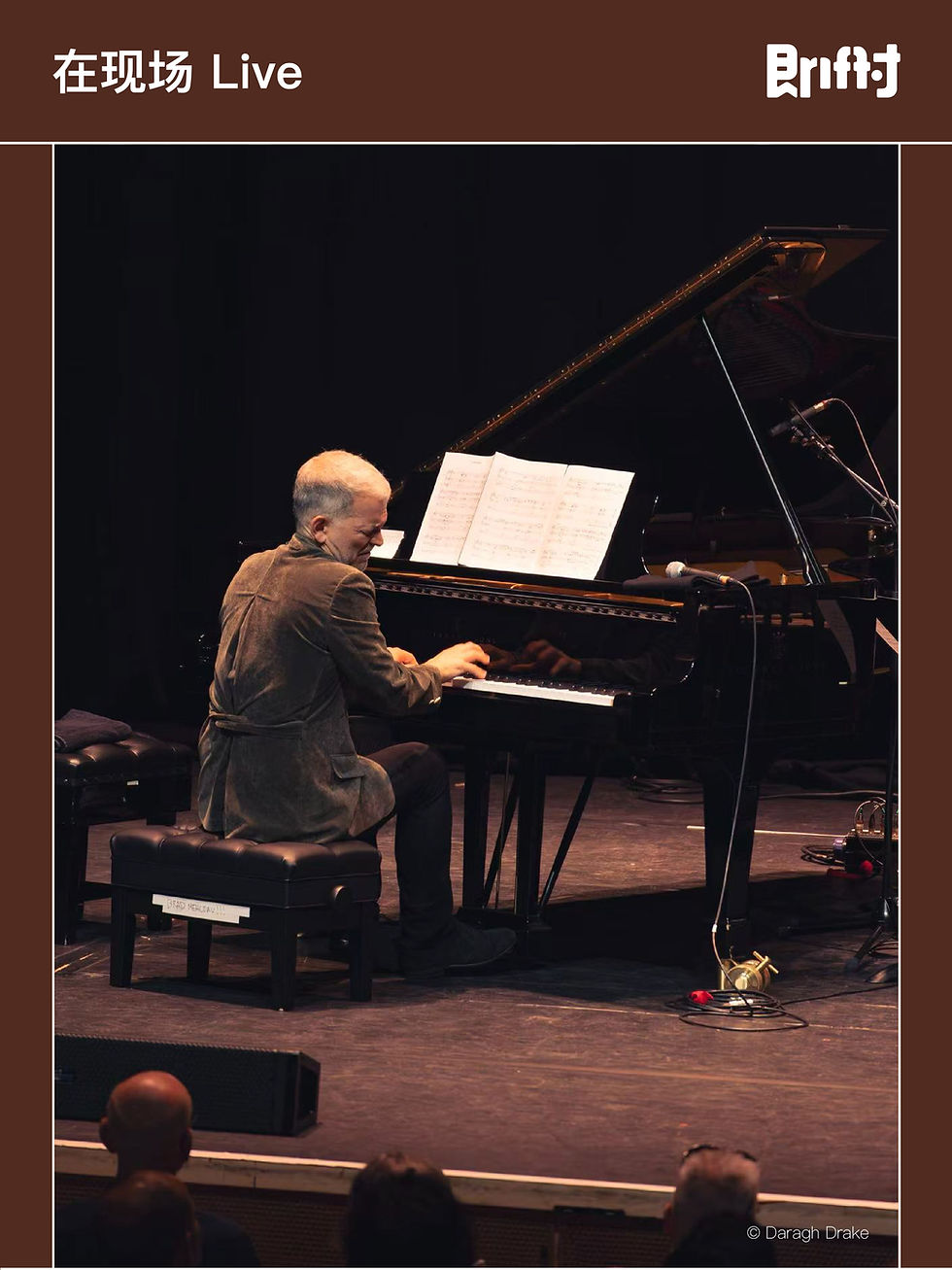Leaning in the Quietube | Brad Mehldau Trio at The Barbican
- Lucy Cheung

- Jun 24, 2025
- 2 min read
Updated: Jun 26, 2025

Each time, it’s something new. Not just in terms of shifting solo or ensemble formats: across the past fifteen years, I don’t recall a single repeated piece. This time, the original works he selected stretched across three decades of albums, alongside reimagining of well-known compositions that have never been recorded.
To listen to Brad is to listen for his intricate harmonic colours, his signature arpeggios and fragmented voicing. It’s to listen for the constant introspection embedded in his bookish compositional logic, and for that melancholy that lingers—regardless of how fulfilled his domestic life or how accomplished his career might appear.
Tonight wasn’t my first time hearing the new trio live—I’d seen them just a year ago at the Cheltenham Jazz Festival—but something had shifted.
The polyphonic passages played with one or both hands were still prominent, yet the densely “woven” textures that once defined his sound had mostly fallen away. The tightly packed note clusters were markedly fewer. Often I noticed him pausing just before striking a note, as if filtering it through one more layer of thought. There was a new sense of space in the playing, and an abundance of soft, almost imperceptible touch—ghost tones and withheld gestures.
That subtlety echoed the playing of his longtime collaborator, drummer Jorge Rossy, who kept shifting his approach at the kit, as if allergic to repetition. Throughout the set, he was in a kind of restless search for new entry points. There were no explosive moments, no grandstanding solos. Even when given room to stretch out, his playing remained exploratory and conversational—an introspective exchange with the piano rather than a display.

Brad also revisited material from The Art of the Trio Volumes 1 and 2, released in 1997 and 1998. A curious fact: when the first volume was recorded, tonight’s bassist Félix was barely born. And yet, in those early tracks—like Lucid—the young Brad was already chasing something feverish. Listening back at home, I was struck by how clearly that track captured a kind of Werther-like adolescent longing. The notes then were rushing out, barely containable. Compared to tonight’s restraint, it feels like the work of a different person.
He also played Convalescent, from the 1998 album—a piece that, when read alongside his memoir, seems to have emerged from a time of addiction, withdrawal, introspection, and tentative calm. The harmonic language traces both extended jazz voicings and the blurred pastel modulations of Impressionist piano. In the solo section, a contrapuntal passage surfaced that recalled his earlier album After Bach—a gesture of homage to the old master.
From Places (2000), we traveled all the way forward to 2025: his upcoming album Ride into the Sun pays tribute to the late 1990s American singer-songwriter Elliott Smith. He played Between the Bars tonight—one of several Smith songs he’s adapted for the record.
What I admire most in Brad is his scholarly, abyss-gazing side, which may well be the largest part of him. But he also opens his arms wide to pop and rock, without condescension. His take on Estate, written in 1960 by Italian composer and singer Bruno Martino, rode a gentle bossa nova pulse without self-consciousness—just a pool of shimmering, transparent sound.
相关阅读/Read More:少年布拉德的烦恼


Comments